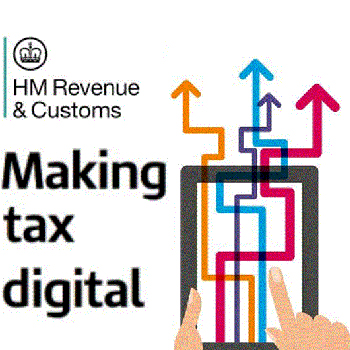Short-term lets like Airbnb, Booking.com, and others have opened up exciting opportunities for people across the UK to earn extra income. If you rent out a spare room, a whole flat, or a holiday cottage, it’s important to understand how your income will be taxed, especially with the key tax changes from 2025.
At our accountancy firm, we’ve spoken to hosts who are unsure about what they need to do when it comes to tax. So, to help you out, here’s a friendly, easy-to-understand guide covering the essentials of tax on Airbnb and short-term lets in 2025.
Do I need to pay tax on my Airbnb income?
Yes, most people who earn money from letting property have to pay tax on that income. The government sees income from short-term letting as property income, just like renting a place out long-term.
However, there are some useful allowances that might reduce or even eliminate the tax you need to pay, depending on how much you earn.
What are the key allowances?
1. The £1,000 property allowance
If you earn less than £1,000 a year in total from letting property, you don’t need to tell HMRC or pay tax on this income. This is called the property allowance.
If you earn more than £1,000, you’ll need to report all your income, not just the amount over £1,000, when you complete your tax return.
2. Rent a room scheme
If you rent out a furnished room in your main home, for example, a spare bedroom on Airbnb, you may be able to use the Rent a Room scheme. This means you can earn up to £7,500 tax-free each year from letting that room. If you share your home with a partner, you each get half the allowance (£3,750).
If you earn more than £7,500, you must declare the income to HMRC and pay tax on the extra amount.
What happens if I let out a holiday home?
Previously, many short-term lets were classed as Furnished Holiday Lets (FHLs), which gave some nice tax advantages. For example, you could claim extra allowances on furniture, get better mortgage interest relief, and qualify for certain capital gains tax reliefs when you sell.
But here’s the big change in 2025… The government decided to abolish the FHL tax rules on 6th April 2025 (and for companies from 1st April 2025). This means holiday lets will now be treated the same as any other rental property for tax purposes.
What does the end of FHL rules mean for you?
- You won’t get the special FHL tax breaks anymore.
- You’ll still need to declare your rental income and pay income tax on your profits.
- You can still deduct normal expenses like cleaning, repairs, insurance, and management fees.
- For furniture and equipment, you can no longer claim capital allowances like before. Instead, you’ll use a simpler relief for replacing domestic items.
- If you sell your holiday home, you won’t be able to use the extra capital gains tax reliefs that applied to FHLs.
What expenses can I claim?
To work out how much tax you owe, you deduct your allowable expenses from your rental income. Allowable expenses include things like:
- Cleaning and laundry costs
- Maintenance and repairs (not improvements)
- Insurance
- Utility bills
- Advertising and booking fees
- Accountancy fees
Keeping good records and receipts is very important, so you can back up your claims if HMRC asks.
What about registering and filing tax returns?
If you earn more than £1,000 from property letting, you must:
- Register for Self Assessment with HMRC (if you haven’t already)
- Complete and file a tax return every year, usually by 31st January following the end of the tax year
- Pay any tax due by that deadline
Even if you earn less, it’s worth keeping records and checking if registering might benefit you, especially if you want to claim losses or expenses.
Are there other things to consider?
Local council rules:
Many local councils have introduced licensing schemes or planning requirements for short-term lets. Make sure to check your local rules, some areas require you to have a license before you can rent your property on Airbnb or similar platforms.
Business rates vs council tax:
If you rent out your property for more than 140 days a year and provide services like cleaning or meals, the property might be liable for business rates instead of council tax. This is something to check with your local council.
VAT:
Most individual hosts won’t need to worry about VAT unless their rental income is very high (over £90,000 per year). For larger operators, VAT registration and rules could apply.
How can we help?
Tax on short-term let’s can be confusing, especially with the changes from 2025. That’s where an accountant can make a big difference. We can help you:
- Understand which tax rules apply to your situation
- Register for Self Assessment and file your tax returns correctly
- Identify all the expenses you can claim to reduce your tax bill
- Plan ahead for changes in tax and local regulations
In Summary
Short-term lets are a fantastic way to earn extra income, but tax matters shouldn’t be overlooked. The removal of the Furnished Holiday Let rules in 2025 is a big change, but with the right knowledge and support, you can stay compliant and keep more of what you earn.
If you’re letting property on Airbnb or similar platforms and want to make sure your tax is in order, get in touch with us. We’re here to make tax simple and help you focus on running your business.
Email us info@future-cloud.co.uk
Your friendly, forward-thinking accountants!
And don’t forget to follow us on social media for the latest updates, tips, and more!


